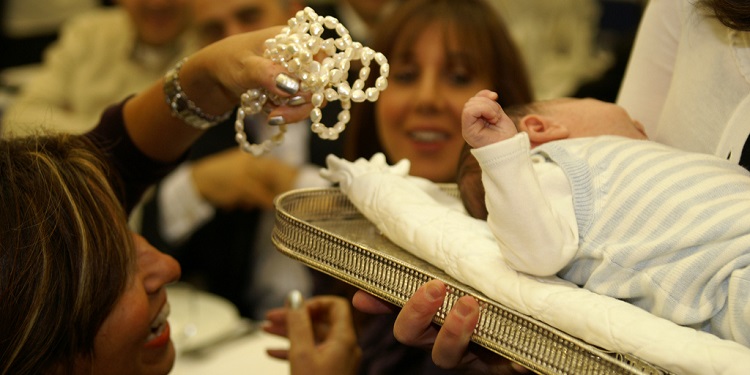Our Answer to Indifference
The Fellowship | May 17, 2018

“Take the Levites in place of all the firstborn of Israel, and the livestock of the Levites in place of their livestock. The Levites are to be mine. I am the LORD.” — Numbers 3:45
The Torah portion for this week is Bamidbar, which means “in the desert,” from Numbers 1:1–4:20, and the Haftorah is from Hosea 2:1–22.
When the firstborn son of a Jewish family is over 30 days old, Jews around the world perform an ancient ritual called “pidyon haben,” which means redemption of the firstborn. The ceremony, which has its roots in this week’s Torah portion, usually involves a silver tray upon which the baby is placed and presented to a Kohen, a genuine descendant of Aaron. After a series of readings, blessings, and the giving of silver coins, the child is declared redeemed. A festive meal is held in honor of the celebration.
Why does the firstborn son need to be redeemed?
The answer is that originally each firstborn male was intended to be dedicated to working in God’s Temple. It would be the firstborn of every family from every tribe, not just those from the tribe of Levi who would serve God in this esteemed matter. But when the sin of constructing the golden calf took place, everything changed. The tribe of Levi refused to participate and spoke out against the misdeed. For doing so, they were given the honor and privilege of being God’s pre-eminent servants in place of the firstborn son from every tribe.
This is why all firstborn sons, who should have been dedicated to God, have to be redeemed and made free of their original requirement. The official transaction allows the priests to remain the only servants in the house of God.
However, truth be told, there were people from every tribe who refused to participate in the sin of the golden calf. Why weren’t they rewarded? Moreover, why were they excluded from the honor of serving in the Temple?
The Jewish sages explain that while many Israelites refused to participate in the sin, only the tribe of Levi spoke out against it. It was their vocal reaction to the dishonoring of God that made them deserving of using their vocal talents in the Temple choir and performing the Temple services.
Famous author and Holocaust survivor Eli Wiesel once said, “The opposite of love is not hate, it’s indifference.” That’s a very powerful statement that makes it intolerable not to stand up for what is right, for the innocent and for God. If we really love God, we cannot stand idly by while others dishonor Him or threaten the principles which He established. To love God means to stand for God even if we stand alone.
Eli Wiesel made another memorable comment. He said: “Because of indifference, one dies before one actually dies.” To live is to feel, to take action, and to make a difference. Let’s all live to the fullest, and instead of indifference, face today’s challenges with passion, action, and love.
